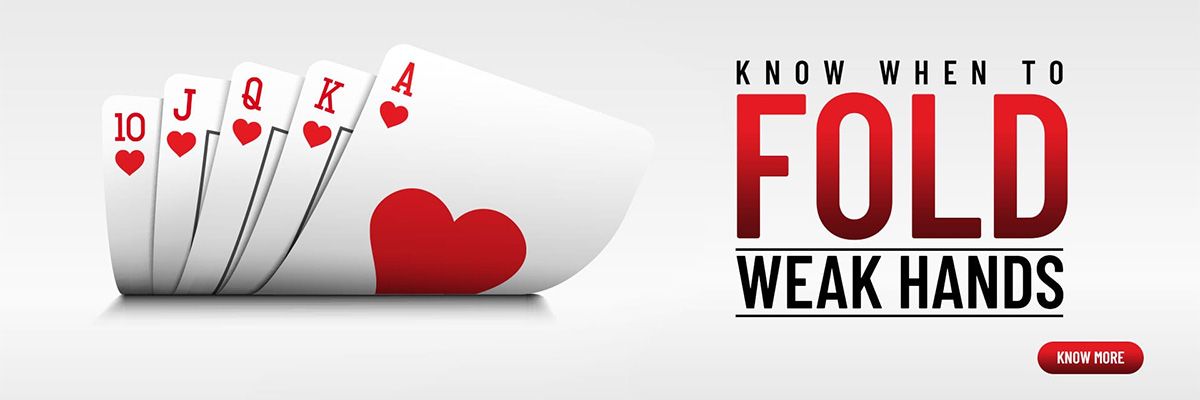Stuck with A Weak Hand? Know When to Fold It and When to Hold It!
It has always been about the nail-biting raises and ginormous pots when it comes to poker. When thinking about a game of poker few players look close enough to notice that the most important part about poker is not about just knowing when to call and raise but also knowing when to fold.
There are a number of considerations to make when it comes to knowing when to fold your hands. Knowing these and applying them will take you a long way. All the way from your hand selection to knowing your fold equity. Buckle down as we delve into a few of the many ways you can determine what to do with your next weak hand.
1. Starting Hand Selection
The first and foremost thing when playing a game of poker is knowing what hand selection is. A starting hand selection is simply choosing to play the good hands and folding the weak ones. Now, this is a pretty simple and obvious point when it comes to selecting hands. As common sense would dictate, an extremely weak hand must almost always be folded right at the beginning of the game. It is not worth the risk, when the stakes can get higher by the minute, like in poker.
The other, not so obvious part about selecting your hands is that in poker, technically any hand can win. It is a game of relativity. Certain hands that you will be dealt will have a higher probability of winning than others. So, there are other factors that you should consider before deciding the odds of your hand.
2. Position at the table
The next factor that closely follows the selection of hands, is your position at the table. Table positions have a considerable effect on the hands that you should choose to play. So, what are the different table positions? Well, there are early positions, middle positions and late positions. When holding weak hands, the early position at the table becomes a tricky place. Holding a weak hand and having to act in an early position is every poker player's nightmare, and rightly so. Hence, in this position, it is always advisable to fold a low hand rather than bluffing your way through it.
The early position is one of a relative disadvantage since you have little to no information about the hands that the other players at the table are holding. However, in this position you can still choose to play the following hands comfortably:
- High pairs like aces, kings and queens.
- Relatively lower pairs, like jokers and tens, are also acceptable.
- If you do not have pairs but are holding suited high cards like aces or kings, you may just get lucky at the flush so you can go ahead with these too.
3. Know your fold equity
Fold equity is the last aspect that we will consider when it comes to holding a weak hand. This is because sound knowledge of fold equity, i.e. the equity that you can gain on the probability that your opponent will bet or fold their hand, can help you out when deciding the fate of your weak hand.
Out of the two ways to win a poker game; having a strong hand and making your opposition fold their hand, you are already down the first option. In this scenario, many players may think that bluffing their way through a weak hand may be enough to win the pot. There are a few problems with that which we need to discuss. Fold equity dictates that there are many factors to consider when we bluff or call a bet or even raise one. There is only a chance that the opponent will fold their cards. The chances are still high that the stakes will keep increasing and you will not secure your fold equity.
These are a couple of the things that you need to keep in mind when learning when and how to fold your weak hands.
Make sure you use them in practice and do your research well. That being said, there is no exact way to determine how weak your hand is. So, keep playing poker online and eventually, you will instinctively know when you have a winning hand to hold on to.







